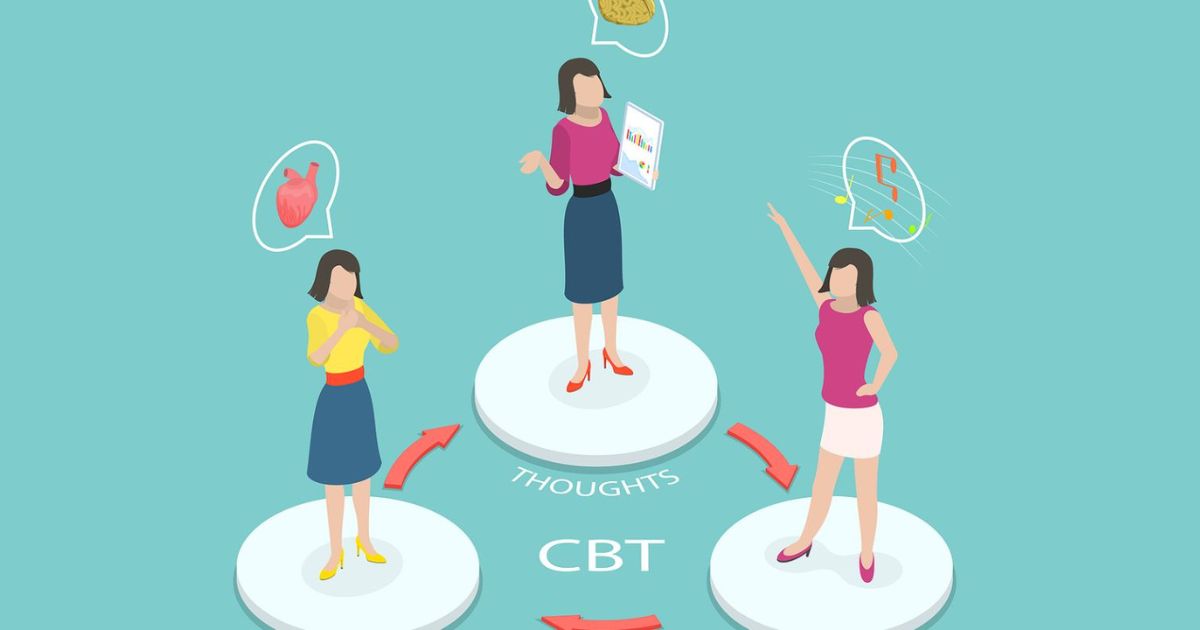The practice of individual CBT, Cognitive Behavioral Therapy, has come under scrutiny for its potential role in perpetuating systemic oppression. Critics argue that by prioritizing individual factors over systemic ones, CBT may unintentionally marginalize individuals already facing systemic challenges due to factors such as race, sexuality, or other stigmatized identities.
In an upcoming article set to be published in the October 2023 issue of The Behavior Therapist, Isaac L. Ahuvia from the Department of Psychology at Stony Brook University and Jessica L. Schleider from the Department of Medical Social Sciences at Northwestern University delve into this critical debate.
Strength And Challenges of Individual CBT
CBT, a widely used form of psychotherapy, often revolves around addressing and modifying negative thinking and behavioral patterns in individuals. Its strength lies in empowering individuals to change their responses to external events by focusing on factors within their control.
However, Ahuvia and Schleider contend that such an individual-centric approach may be counterproductive when applied to those confronting structural discrimination.
By placing excessive emphasis on an individual’s response to oppressive experiences, CBT might inadvertently divert attention away from the more substantial systemic issues at play, inadvertently placing the burden of change on the oppressed rather than addressing the oppressive systems themselves.
The authors acknowledge the efforts of many cognitive behavioral therapists who have developed interventions explicitly tailored for marginalized groups, striving to validate their experiences in a culturally responsive manner.
Nevertheless, they caution that even these culturally adapted practices might lead to unintended consequences when the overarching emphasis remains on individual-level factors.
The debate surrounding CBT and its role in addressing systemic discrimination underscores the complex intersection of psychology, social justice, and mental health.
CBT’s foundational principles, which focus on changing thought patterns and behaviors at the individual level, have been highly effective in addressing various mental health challenges.
However, as Ahuvia and Schleider argue, there is a need for a nuanced discussion regarding its applicability in contexts where systemic discrimination and structural barriers significantly impact individuals’ lives.
CBT’s core premise revolves around the idea that individuals have agency and can modify their cognitive and behavioral responses to distressing situations. This approach has proven beneficial in treating conditions like anxiety, depression, and post-traumatic stress disorder, empowering individuals to regain control over their lives.
However, when individuals are subjected to systemic discrimination, their mental health struggles often intersect with external forces beyond their control.
The authors highlight the potential danger of placing undue responsibility on individuals to adapt and cope with oppressive systems.
While culturally adapted CBT interventions have made important strides in addressing the unique needs of marginalized groups, the question remains whether an individual-centered approach can adequately tackle systemic issues that underlie and perpetuate discrimination.
One key aspect of the debate is the importance of recognizing the broader context in which individuals experience mental health challenges. Oppression, discrimination, and societal inequities are not isolated incidents but deeply ingrained systemic problems that affect people’s well-being.
Critics argue that CBT’s traditional focus on changing individual thought patterns and behaviors may inadvertently divert attention away from the urgent need to address and dismantle these systemic issues.
As the field of mental health continues to evolve, there is a growing recognition of the need for more holistic and inclusive approaches.
While CBT has undoubtedly provided significant benefits to many individuals, it is essential to acknowledge its limitations and explore alternative therapeutic strategies that better address the complex interplay between mental health and systemic discrimination.
In conclusion, the debate surrounding the role of CBT in addressing systemic discrimination is a critical conversation within the field of mental health. While CBT has proven effective in treating various mental health conditions, its applicability in contexts where systemic oppression is a significant factor is a topic of ongoing discussion.
The article authored by Isaac L. Ahuvia and Jessica L. Schleider adds depth to this conversation, emphasizing the importance of recognizing the broader systemic issues at play while striving for more inclusive and effective therapeutic approaches.
Ultimately, the goal is to ensure that individuals facing systemic discrimination receive the support they need to navigate both their mental health challenges and the structural barriers that impact their lives.






















